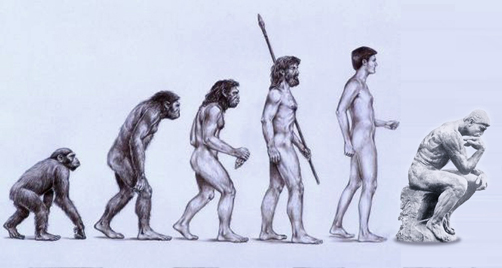About seven years ago I had an epiphany.
It came at a time shortly after my blundering exit from college and the house. I had been invited to participate as a junior member of the chapter alumni board. In this capacity, the acting president of the board had entrusted me with the task of enforcing a ban on full-size refrigerators in the house – a rule which was currently being violated by a pair of actives.
I accepted this task. But when push came to shove in facing those actives, I caved and promptly threw the board under the bus. See, on the one hand, I agreed with the board and felt compelled to follow through on my task. On the other hand, I could also see why, from the active’s perspective, they felt justified. Frankly, I didn’t have the wherewithal or interest in the issue to argue one way or the other. So, to save face, I claimed that the president and the rest of the board were forcing my hand, but that I’d cover for them so they could keep the fridge.
Then it came time to answer to the board president. In my ignorance and arrogance, the response I chose appeared to be the simplest and most effective way to preserve my own self-image: an e-mail to the president insulting and accusing him of bullying the actives which I copied to the rest of the alumni board. It should be clear why this was inappropriate.
The president then replied with something that will stick with me forever. He told me he had always thought that I was passive-aggressive, and this had just confirmed it for him. Therein I found my epiphany and one of the prime inciting incidents to launch my path to real maturity.
***
Sometimes I’m amazed at how dumb I was as a kid. I guess a less masochistic way to say that is: sometimes I marvel at how much I’ve had to learn and grow to become a man. But they basically mean the same thing to me.
While I cringe with discomfort at the memories of some of the stupid things I’ve done and said to people over the years, I look back and realize I would not be who I am today without them. So, while I sincerely apologize for all those I may have hurt along the way, I truly have no regrets. Instead, I have developed a surprising appreciation for and acceptance of failure as a catalyst for change, improvement, and growth.
This reminds me of Toyota. For those unaware, Toyota, the car company, pioneered a production system which eventually became known as Lean Methodology and subsequently revolutionized American Industry. But what really interests me about Lean is captured in one simple phrase which has become a mantra of the Lean disciple: Fail forward fast.
‘Fail forward fast,’ (FFF) evokes the concept that to improve and change you must embrace rapid iterative empirical experimentation. Likewise, you must be willing to fail, and fail often, but always remain diligent to learn from your failures. This style of growth encourages you to plan only as much as needed and then take risks, try new things, and act on the world. In doing so, you learn dynamically by drawing out and observing a response—good, bad, or otherwise—from the world around you; a feedback loop from which you may gain knowledge and change.
FFF holds relevance across all areas of our life: professional, social, family, academic, etc. But as you have probably gathered, this philosophy can be dangerously reckless or inappropriate in the wrong hands or context. Given the potential downside risks, negative externalities, and personal drama failure can cause in most of these domains, we have much less freedom to experiment. The scope of our learning is further limited by the specificity of the context and the degree to which we can apply that learning in other situations. In short, it’s difficult to find a good place to practice FFF to it full capacity.
***
Which finally brings me to my point: why I love this fraternity and why you should too. I believe that our fraternity creates as close to an ideal as there can be for a context to support this type of experimentation, failing, and learning.
The great thing about our fraternity is that it integrates domains that span across the entire scope of a man’s being and creates an holistic environment to allow him to safely and confidently experiment and meddle within them all. Alpha Delta Phi to an undergrad is like a microcosm of the world into which he will eventually grow up. It gives him a taste of the experience of manhood, but doesn’t beg him to take it too seriously. It suggests that failure is an option, and indeed is an acceptable way to learn and avoid suffering the consequences later in life. It makes FFF an obligatory strategy.
Now, I didn’t realize this until much later after I left college. It didn’t really hit me until running into one particular brother on Founder’s Day. Up until that point, I had been nervous about seeing him again due to a profound guilt I felt for something awful I had said to him previously. Naturally, I assumed he despised me. In spite of my expectations, he walks up to me, hugs me and offers to buy me a drink. It then became utterly clear to me why I loved this fraternity.
The thing is: we can fail. We can screw up. We can insult, embarrass, and offend one another. We can make academic mistakes and be delinquent in our responsibilities to the house and fraternity. We can stumble in our professional and personal lives. And we can do so fearlessly. Because at the end of the day, we can still walk into Founder’s Day and hug one another and buy each other drinks. We can do this because we have an understanding with one another that whatever happens, we are something more than just friends and nothing should be taken so seriously that it inhibits the joy, contentment, and freedom of that relationship.
Of course, this doesn’t mean we shouldn’t hold one another accountable for our actions. We can’t learn if we don’t know when and how we have failed. And, as I discovered in the moment of epiphany I described earlier, sometimes you just need someone to be brutally honest with you when no one else will.
I had never been told before that I was passive-aggressive. But as soon as the board president said that to me, I suddenly noticed all of the ways I had been acting so in my life. This simple act of honesty forever changed the way I interact with people. To be sure, I still falter and am still learning. But I can’t say I would have been launched on this path had I not been held accountable at that moment.
I can’t stress strongly enough my belief that our fraternity should, as it has for me, encourage learning and accountability as I have described it. We can indeed work in conflict with or in favor of this ideal. As soon as we start taking things too seriously or too personally, as soon as we make it okay to get offended at one another, and as soon as we forget to take responsibility for our own state of mind we start to lose the freedom we once had. However, if we act with respect, honesty, openness, authenticity, and good humor towards one another, we create the environment and the opportunities to grow.
Author Eric Hoffer once appropriately predicted, “In times of change learners inherit the earth, while the learned find themselves beautifully equipped to deal with a world that no longer exists.” Taking this advice, fail forward fast and keep learning my friends.
Jared Schmidt, MN ’04





Alex King, MASS '09
What an amazingly well-written article. This really hits the nail on the head about the essence of our fraternity and our members’ ability to constantly learn and grow from their mistakes. A huge Xaipe to Brother Schmidt for this article.
Christian Glason, Kenyon '08
It’s a tremendous task to simply explain we like the Fraternity because it makes us better people. Well said, and I couldn’t agree more.